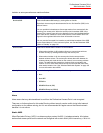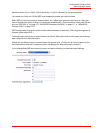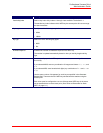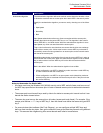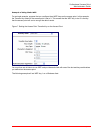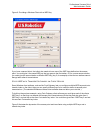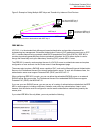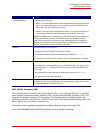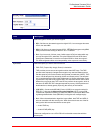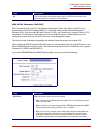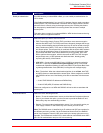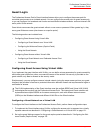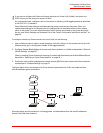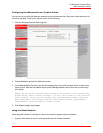
Professional Access Point
Administrator Guide
Security - 116
Field Description
WPA Versions Select the types of clients you want to support:
•WPA—
If all clients on the network support the original
WPA,
but none support the newer
WPA2
, then select
WPA
• WPA2—
If all clients on the network support
WPA2
,
USRobotics
suggests using
WPA2
,
which provides the best security per the
IEEE
802.11i
standard.
• Both—
If you have a mix of clients, some of which support
WPA2
and others which sup-
port only the original
WPA
, select
Both
. This option lets both WPA and WPA2 clients
associate and authenticate, but uses the more robust WPA2 for clients who support it.
This WPA configuration allows more interoperability, at the expense of some security.
Cipher Suites Select the cipher you want to use from the list:
•TKIP—
TKIP (Temporal Key Integrity Protocol) is the default.
TKIP provides a more secure encryption solution than WEP keys. The TKIP
process more frequently changes the encryption key used and better ensures
that the same key will not be reused to encrypt data (a weakness of WEP). TKIP
uses a 128-bit temporal key shared by clients and access points. The temporal
key is combined with the client's MAC address and a 16-octet initialization vector
to produce the key that will encrypt the data. This ensures that each client uses a
different key to encrypt data. TKIP uses RC4 to perform the encryption, which is
the same as WEP. But TKIP changes temporal keys every 10,000 packets and
distributes them, thereby greatly improving the security of the network.
• CCMP (AES)—
Counter mode/CBC-MAC Protocol (CCMP) is an encryption method for
IEEE
802.11i
that uses the
Advanced Encryption Algorithm
(
AES
). It uses a CCM
combined with Cipher Block Chaining Counter mode (CBC-CTR) and Cipher Block Chain-
ing Message Authentication Code (CBC-MAC) for encryption and message integrity.
• Both—When the authentication algorithm is set to Both, both TKIP and AES cli-
ents can associate with the access point. WPA clients must have one of the fol-
lowing to be able to associate with the access point:
• A valid TKIP key
• A valid CCMP (AES) key
Clients not configured to use a WPA-PSK will not be able to associate with the
access point.



